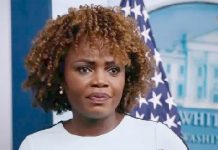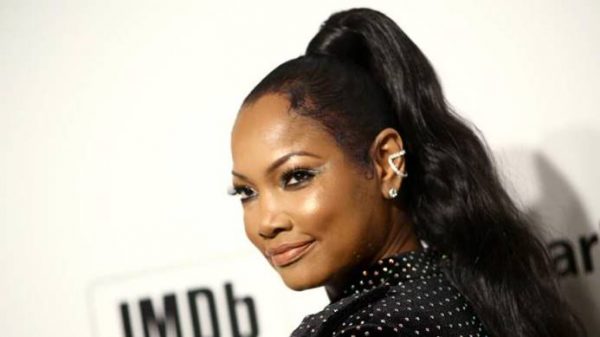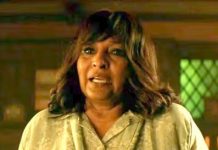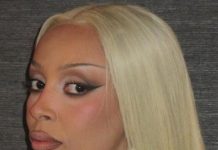 *The writer of this piece is black, a woman and I’ll be the first to confess that I don’t watch “Being Mary Jane.”
*The writer of this piece is black, a woman and I’ll be the first to confess that I don’t watch “Being Mary Jane.”
Give me heart-pounding, edge of your seat, high-drama, and I can binge on it for hours, or even for weeks if the series is as compelling as “Breaking Bad.”
Based on the reviews, fan comments and previews I’ve seen, I’m not convinced “Being Mary Jane” can fully satisfy my TV experience expectations.
What I know about BET’s first hour-long scripted drama is that it follows the beautiful Gabrielle Union in the lead role of Mary Jane Paul, a successful cable news anchor who has a closet packed with designer clothes and romantic/personal drama. None of which sounds offensive or nefarious enough for me, but according to many viewers and TV critics, the series is the defining moment for black women in TV – most especially black female characters – and apparently I’m missing out on revolution. So are you if you’re not watching it.
Is “Being Mary Jane” helping to shape the future development of black, female characters?
According to a gushing write-up by series fan and TV critic Shannon M. Houston for Shadow and Act, “some of the most vivid and “important women characters—white, black and otherwise—are on Mara Brock Akil’s show and the masses should be watching.”
Houston writes:
“I celebrate this show as a TV critic who knows the series is far from perfect. The writing vacillates between brilliant and heavy-handed. There are too many times when I imagine Keenan Ivory Wayans popping in between scenes to shout, “Message!” But certain missteps must be forgiven when you have characters like Kara Lynch, Mary Jane Paul, Lisa Hudson, Niecy Patterson—and this season’s most incredible yet—CeCe.”
So what makes this series so dynamic according to Houston? Apparently it’s all the daring masturbation scenes, the professional woman who puts her career ahead of her kids, and the show’s fearless approach to controversial topics such as suicide, depression and “the culture of silence surrounding molestation.”
“Being Mary Jane” was always different, and was always going to be different. From the first TV movie event, it was clear that Akil was trying to, as she has with her other shows in, bring a different sort of woman to TV. It wasn’t just compelling that Mary Jane was a successful black woman. And it wasn’t enough that she had this complicated family she felt obligated to carry. What made her stand out was the fact that, even as the lead on the show, she could be incredibly unlikable at times—arrogant, messy and self-righteous beyond belief. But it was Mary Jane’s commitment to unapologetic self-satisfaction that really stood out to me. And by “self-satisfaction,” I really just mean masturbation.”
Kudos and applause to producer Mara Brock Akil for helping black actresses and creatives remain employed, but I wonder; is the black audience expected to support all things black just because?
No? I don’t think so either, but what if Loretta Devine is added to the plot twist? She certainly is a draw for many, and according to Houston, “nothing quite compares to the [presumably] gay, elderly, activist and criminal introduced this season by Loretta Devine’s CeCe.”
“There is simply, nothing quite comparable to this character on television today. The brilliance of CeCe is that she was introduced in a way that completely spoke to our expectations about the kind of person Loretta Devine would play as a guest on a series like this. A warm, forgiving and kind older black woman gets injured in a car accident caused by Mary Jane. And then, just as we thought she’d served her purpose as a sort of wake up call to the protagonist, she put on one of her signature fedoras, and got more gangsta than all of the TV anti-heroes we’ve been championing for the past few years.”
Based on Houston’s explanation of Devine’s character, she sounds like some sort of mesmerizing Robin Hood/Walter White hybrid, and that certainly sounds appetizing. I may be able to get into this.
Devine has spoken about the thrill she gets playing a character unlike any she has previously played, noting “I usually play someone’s mom or someone’s wife, where I answer questions like, “Are we going to dinner?”
Only time will tell if Hollywood continues to embrace strong, black women in lead roles on Primetime shows, or will the novelty wear off as soon as it becomes less profitable for the network.
In the meantime, let’s hope that the resonating work of Gabrielle Union and her “Being Mary Jane” co-stars help influence future opportunities for black actresses.
“Being Mary Jane” airs Tuesdays at 10/9c on BET.
We Publish News 24/7. Don’t Miss A Story. Click HERE to SUBSCRIBE to Our Newsletter Now!





